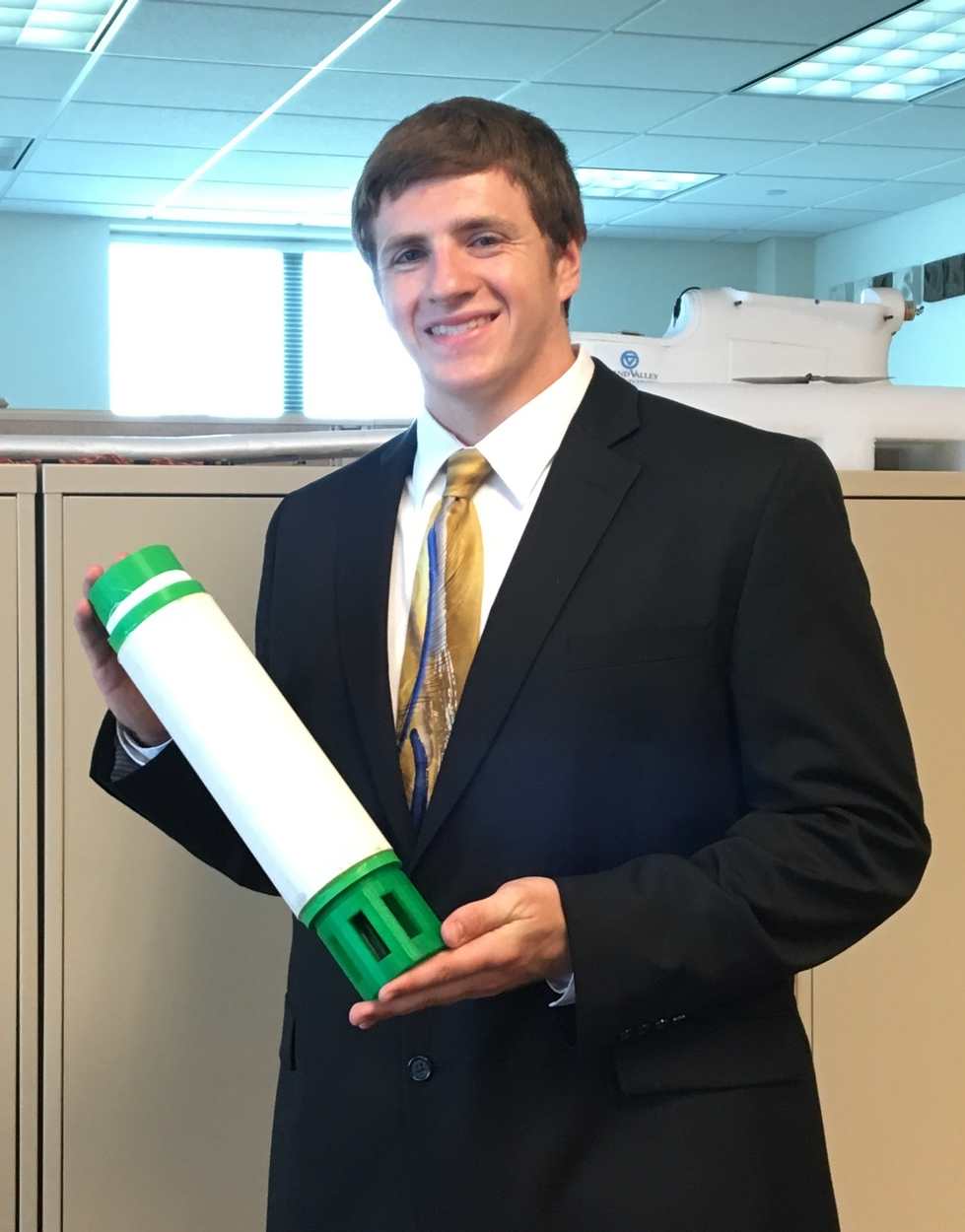DIY Sensor Development

Summer 2016 Student Research Assistant John Smutny completes a self contained data logging sonde. This prototype uses readily available components in a 3D printed case together with an easily programmed microprocessor to measure water conductivity, temperature, and depth. This so called "CTD probe" costs less than $200 to construct and has capabilities comparable to other much more expensive commercially available scientific instruments.
Designs for Citizen Scientists
Researchers at AWRI often get asked a simple question, “Is the water quality of my lake good or bad?” Unfortunately, there is no guarantee that someone has tested their water! At AWRI we have been giving some thought as to how non-scientist might measure water quality in a cost effective and reliable fashion.
John Koches, Associate Research Scientist, has built, tested, and assessed the use of drones and other autonomous vehicles to collect environmental data. In 2016 Koches was assisted by two GVSU Engineering Students, Gabrielle Thelen and John Smutny. Thelen, a grant recipient from the Michigan Space Grant Consortium, helped to create an autonomous vessel called the BoatBot. Smutny helped to design and build a monitoring probe that can measure water conductivity, temperature, and depth.
The challenge facing anyone looking to equip today’s “citizen scientist” is to find tools that are inexpensive, readily available, and yet durable and reasonably accurate. The answer lies in the use of off-the-shelf components and “open source” technology. AWRI researchers use microprocessors like Arduino and credit card size computers like Raspberry Pi to develop very sophisticated scientific instruments capable of remote deployment and hours of dependable operation for a fraction of the usual cost.
Both the BoatBot and the monitoring probe offer a low cost solution for property owners and others interested in learning more about their environment.
For more information about DIY Sensors and Citizen Scientist applications contact Associate Research Scientist John Koches.
